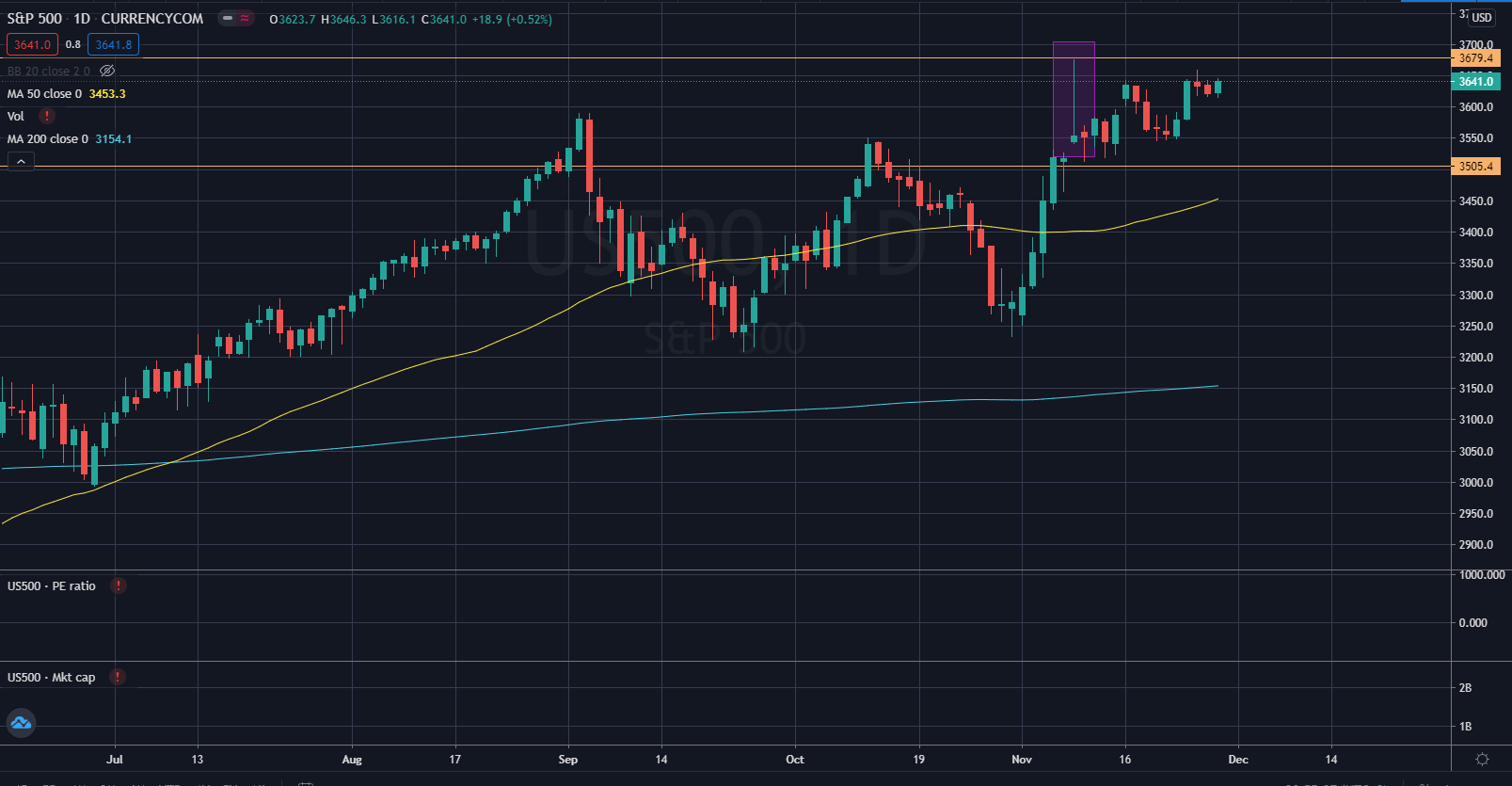There will be major U.S. data releases this week; the ISM Manufacturing PMI on Tuesday coupled with November jobs report on Friday. Meanwhile, euro zone inflation data is likely to cement expectations that the European Central Bank will ramp up stimulus measures at its next policy meeting.
Here is what you need to know to start your week.
S&P 500 (US Market)
The benchmark index ended the week with a gain of +2.39% (+85 points), erasing the losses incurred from the previous week. As highlighted previously, S&P 500 remains hovering within a Bearish Shooting Star Candle established on 9th November.
Immediate resistance to watch is at all time high of 3,975 level, a modest 1.01% away.

SG Market (Singapore Market)
The Straits Times Index (STI) rallied with another consecutive week of gain at +1.52% (42.81 points).
At the current junction, STI is currently testing the major gap resistance zone within 2,900 – 2960 levels, closing with a Bearish Shooting Star Weekly Candle pattern. Any Breakdown of 2,835 level will potentially see STI start its correction into its support zone ranging above 2,750 level.

Top 3 things to watch this week:
1. Vaccine timing
U.S. health authorities are to hold an emergency meeting on Tuesday to recommend that the Food and Drug Administration allow healthcare professionals and people in long-term care facilities to be the first two groups to get a coronavirus vaccine developed by Pfizer (NYSE:PFE) and German partner BioNTech, which is awaiting approval.
2. Nonfarm payrolls
The report is expected to show a seventh straight month of jobs gains, but the consensus forecast that only 500,000 jobs were added. The unemployment rate is expected to tick down to 6.8% from 6.9%, still well above the 4.5% rate in March, before much of the U.S. economy went into lockdown.
3. OPEC+ meeting
OPEC+ had been expected to increase oil output by 2 million barrels per day from January to ease the record supply cuts that were implemented amid a price slump earlier this year. While crude oil prices have recovered to eight-month highs near the $50 a barrel level, energy analysts say it is now expected to delay those plans for at least three months.



